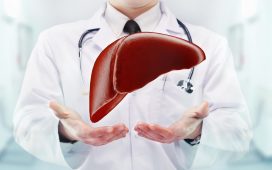Teens with pre-existing mental health conditions, tx more likely to transition to long-term opioid use
TUESDAY, March 13, 2018 (HealthDay News) — Adolescents with pre-existing mental health conditions and treatments are more likely to receive any opioid and to transition to long-term opioid therapy, according to a study published online March 12 in JAMA Pediatrics.
Patrick D. Quinn, Ph.D., from Indiana University in Bloomington, and colleagues examined how mental health conditions and treatments are associated with initiation of any opioid and long-term opioid therapy in a cohort of 1,224,520 incident opioid recipients aged 14 to 18 years at first receipt who did not have cancer diagnoses at first receipt. Recipients were compared with non-recipients matched on sex, calendar year, and years of age of first enrollment, and months of enrollment.
The researchers found that the likelihood of receiving any opioid was increased for adolescents with anxiety, mood, neurodevelopmental, sleep, and non-opioid substance use disorders and most mental health treatments (odds ratios, 1.13 to 1.69). The cumulative incidence of long-term opioid therapy was 3 per 1,000 recipients within three years after first opioid receipt among the 81.7 percent of opioid recipients with at least six months of follow-up. There was a strong association for all pre-existing mental health conditions and treatments with higher rates of long-term opioid therapy (adjusted hazard ratios, 1.73 to 8.9).
“Commercially insured adolescents with many types of pre-existing mental health conditions and treatments were modestly more likely to receive any opioid and were substantially more likely to subsequently transition to long-term opioid therapy,” the authors write.
One author disclosed serving as a paid expert witness in cases involving the U.S. Department of Justice and several pharmaceutical companies.
Editorial (subscription or payment may be required)
Copyright © 2018 HealthDay. All rights reserved.








